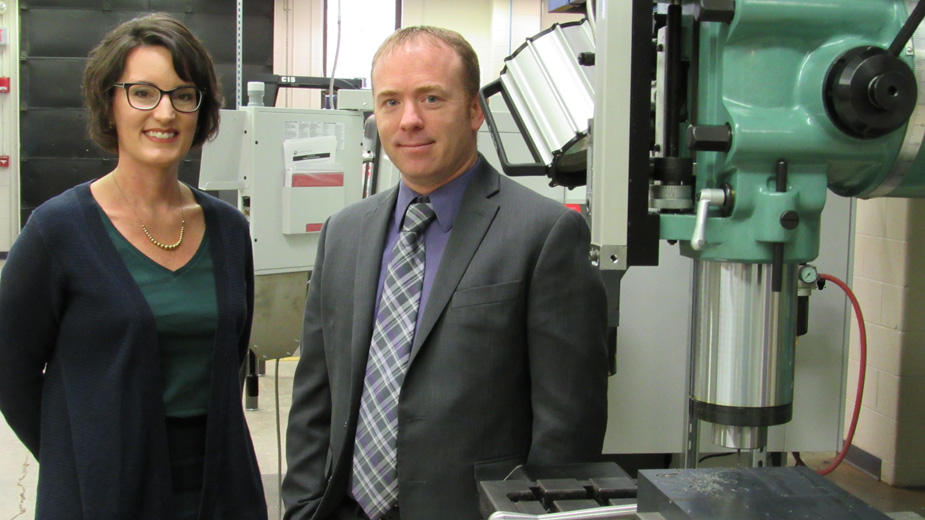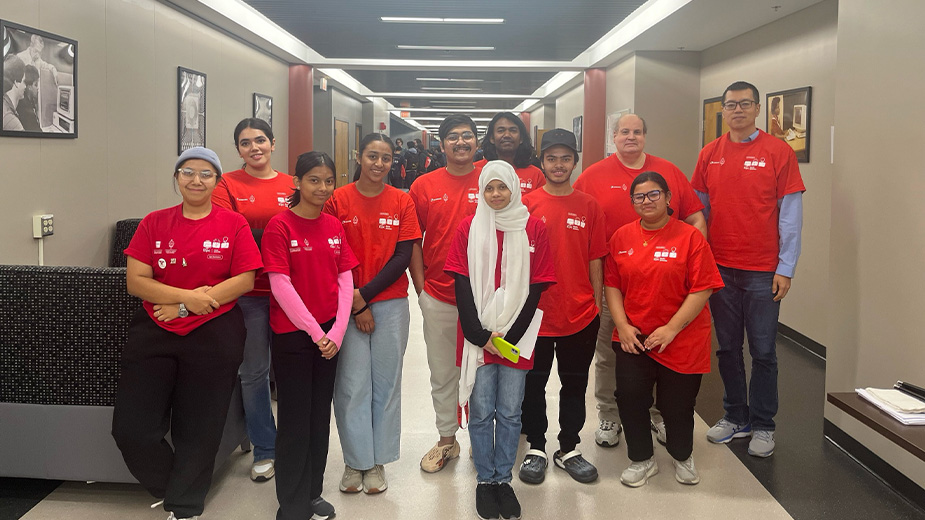Oh-Penn Network Expands Apprenticeship Programs
YOUNGSTOWN, Ohio – For the past year, the Greater Oh-Penn Apprenticeship Network’s programs have helped participating employers in the manufacturing sector mostly train and enhance the skills of in-house employees.
However, these employers have found that elevating the skills of existing workers isn’t enough to secure a qualified workforce in today’s tight labor market.
“We’re seeing a shift from companies training internally to looking outside of industry,” said Jessica Borza, executive director of the Mahoning Valley Manufacturers Coalition, a partner in the Oh-Penn Network.
While companies interested in procuring talent through apprenticeships prefer those who have some training or exposure through trade or technical schools, more are willing to take the risk and invite others who may not have any mechanical or industrial experience.
“Now, employers are asking us to give them people who have a good work history – even if it’s in a different industry – and we’ll invest in them,” Borza said. “That’s huge.”
And that’s the trust behind an effort to expand the Oh-Penn Apprenticeship Network in the Mahoning Valley through new programs administered through Eastern Gateway Community College and career centers in Trumbull and Columbiana counties.
Beginning this fall, the program will add machining apprenticeship programs to EGCC’s machining lab at Choffin Career Center in Youngstown, and Columbiana County Career and Technical Center’s training lab in Lisbon.
Trumbull County Career and Technical Center in Champion is currently administering a machining apprenticeship program sponsored by Oh-Penn.
Aside from the three machining programs, a new welder/fitter apprenticeship course will be added through EGCC, and an industrial maintenance program will be introduced at TCCTC, Borza said.
The goal is to fill all five programs this fall with 12 apprentices each for a total of about 60 participants, Borza said. Thus far, 16 manufacturers have signed on with the initiative, she said.
With the labor market so tight, it’s becoming more difficult for manufacturers to find qualified workers to staff positions as older employees retire, Borza said. The apprenticeship programs have helped advance the skills of existing employees, but there needs to be more skilled workers to fill projected vacancies in the machining, industrial maintenance and welding/fitting trades.
It’s forced companies to reach out to the general public to recruit new employees interested in a career in manufacturing, which can be a risky investment for some companies, acknowledged Ryan Pasco, director of engineering at EGCC.
“We’re finding that companies are willing to take the risk because they are having a hard time filling positions,” he said.
To help this process along, MVMC has scheduled two recruitment fairs this spring, Borza said. The first is scheduled for April 26 at CCCTC and the second is slated for May 3 at Choffin.
In general, it should take three years for an entry-level apprentice with little experience to complete the program, Borza said.
However, those who already possess specific skills and aptitudes can test out for certifications, and bypass some of the curricula, Borza said, and shorten the time it takes to complete training.
Pasco said that apprenticeship programs are especially valuable for those who want to pursue an education while working full-time. Moreover, the tech courses completed would translate into credit hours toward an associate’s degree at EGCC, he said.
“This allows them to earn a living, upgrade their skills, advance their careers and pursue and education,” Pasco said.
Under the program, the host employer pays the apprentice. Entry-level apprentices can earn between $14 and $16 an hour, depending on the nature of work, the employee’s skill level and the company, Borza said.
Those companies that participate in Oh-Penn’s apprenticeship program would receive reimbursements for the training, Borza noted. For the first two years of the program, Oh-Penn would reimburse companies $5,000 per apprentice. Those companies that sign up during the third year would be reimbursed $3,000 per apprentice, she said.
Since the program is already a year old, those companies new to the apprenticeship network would still qualify for the $5,000 reimbursement for the fall courses, she said.
And, the MVMC has made it easy for companies to get on board with the program, Borza noted. “They just need to identify the apprentice, identify a mentor or mentors, pay for classroom training which will be reimbursed, and then keep track of their progression on the job,” she said.
The apprenticeships are funded through a $2.9 million U.S. Dept. of Labor grant, which the organization secured two years ago.
Pasco added that while some companies are hesitant to invest in new training programs for fear their employees might leave for another job once their training is completed, new studies show that such programs have the opposite effect.
“Current employees feel more appreciated, and creates an allegiance to keep them there,” he said, thus boosting retention among an employer.
And, Borza noted the labor pool isn’t expanding anytime soon. “The reality is that the pool is shrinking, and those coming into the schools isn’t going to be enough to fill the pipeline for the future,” she said. “The forecast should be enough to convince them.”
Pictured: Jessica Borza, executive director of the Mahoning Valley Manufacturers Coalition and Ryan Pasco, director of engineering at Eastern Gateway Community College.
Copyright 2024 The Business Journal, Youngstown, Ohio.



